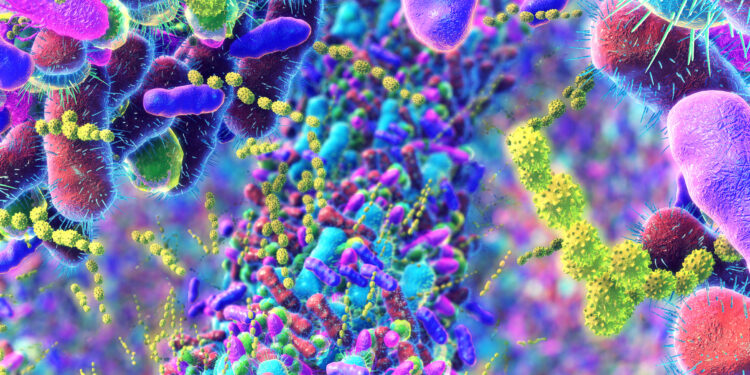Scientists are uncovering a powerful link between gut health and mental well-being, revealing how the trillions of microbes in our digestive system can influence mood, stress, and even conditions like anxiety and depression. This emerging field, known as the gut-brain axis, is opening new doors to mental health care through diet, probiotics, and fermented foods. The Gut-Brain Connection The gut-brain axis is the two-way communication system between the gut and the brain. It involves nerves, hormones, and the immune system working together.
The gut, often called the “second brain,” contains millions of neurons and hosts a diverse community of microbes that produce chemicals affecting mood and cognition. Recent studies show that gut bacteria can influence the production of neurotransmitters like serotonin, which regulates mood. A healthy gut microbiome may help reduce stress, improve focus, and even ease symptoms of mental health disorders. However, an imbalanced gut—caused by poor diet, stress, or antibiotics—can contribute to anxiety, depression, and cognitive issues.
Psychobiotics: Probiotics for the Mind A new class of probiotics, called psychobiotics, is gaining attention for its mental health benefits. Unlike regular probiotics that support digestion, psychobiotics are specific strains of bacteria that can positively affect brain function. Research highlights strains like Lactobacillus rhamnosus and Bifidobacterium longum for their ability to reduce anxiety and improve mood in both animal and human studies. For example, a 2015 study of 710 young adults found that eating fermented foods rich in probiotics, such as yogurt and kimchi, was linked to lower social anxiety.
Another study showed that Lactobacillus casei in fermented milk improved mood and reduced stress in people facing academic pressure. While more research is needed, these findings suggest psychobiotics could complement traditional mental health treatments.
Fermented Foods: A Natural Solution Fermented foods like yogurt, kefir, sauerkraut, and kimchi are packed with beneficial bacteria and may support the gut-brain axis. These foods not only provide probiotics but also contain prebiotics—fibers that feed good bacteria—and other compounds that reduce inflammation and support brain health. A 2024 review in Neuroscience and Biobehavioral Reviews found that diets rich in fermented foods can lower stress levels and improve cognitive performance. For instance, eating 1-4 servings of low-sugar fermented foods daily can boost gut serotonin production, which signals the brain through the vagus nerve, a key player in the gut-brain axis. Experts also recommend high-fiber foods like fruits, vegetables, and whole grains, which act as prebiotics to nourish gut bacteria. A Mediterranean diet, rich in these foods, has been linked to lower depression rates and better mental health.
Challenges and Future Directions While the science is promising, experts caution that psychobiotics and fermented foods are not a cure-all. The effects of specific bacterial strains vary, and individual differences in gut microbiomes mean not everyone responds the same way. Large-scale human studies are needed to confirm findings and establish clear guidelines for using psychobiotics in mental health care. Dr. John Cryan, a leading researcher at University College Cork, emphasizes the potential: “You can change your microbiota through diet, unlike your genetics. This gives people agency over their mental health.” However, he stresses the need for more research to understand how these interventions work across diverse populations.
What You Can Do Incorporating gut-friendly foods into your diet is a simple way to support both gut and mental health. Here are some tips: – Eat fermented foods: Add yogurt, kefir, or kimchi to your meals daily. – Increase fiber intake: Include fruits, vegetables, whole grains, and legumes to feed good bacteria. – Limit processed foods: Diets high in sugar and fat can disrupt gut balance and worsen mental health. – Consult a professional: Before starting probiotic supplements, talk to a healthcare provider, especially if you have existing health conditions.
A New Frontier in Mental Health The gut-brain axis offers a fresh perspective on mental health, highlighting the role of diet and lifestyle in emotional well-being. As research advances, psychobiotics and fermented foods could become valuable tools alongside therapy and medication, empowering people to take charge of their mental health through their gut. *For more information on gut health and nutrition, visit WorldNow.co.in or consult a healthcare professional.
Sources: Neuroscience and Biobehavioral Reviews, 2024; Food Research International, 2022; PubMed; Medical news today, 2024.




































